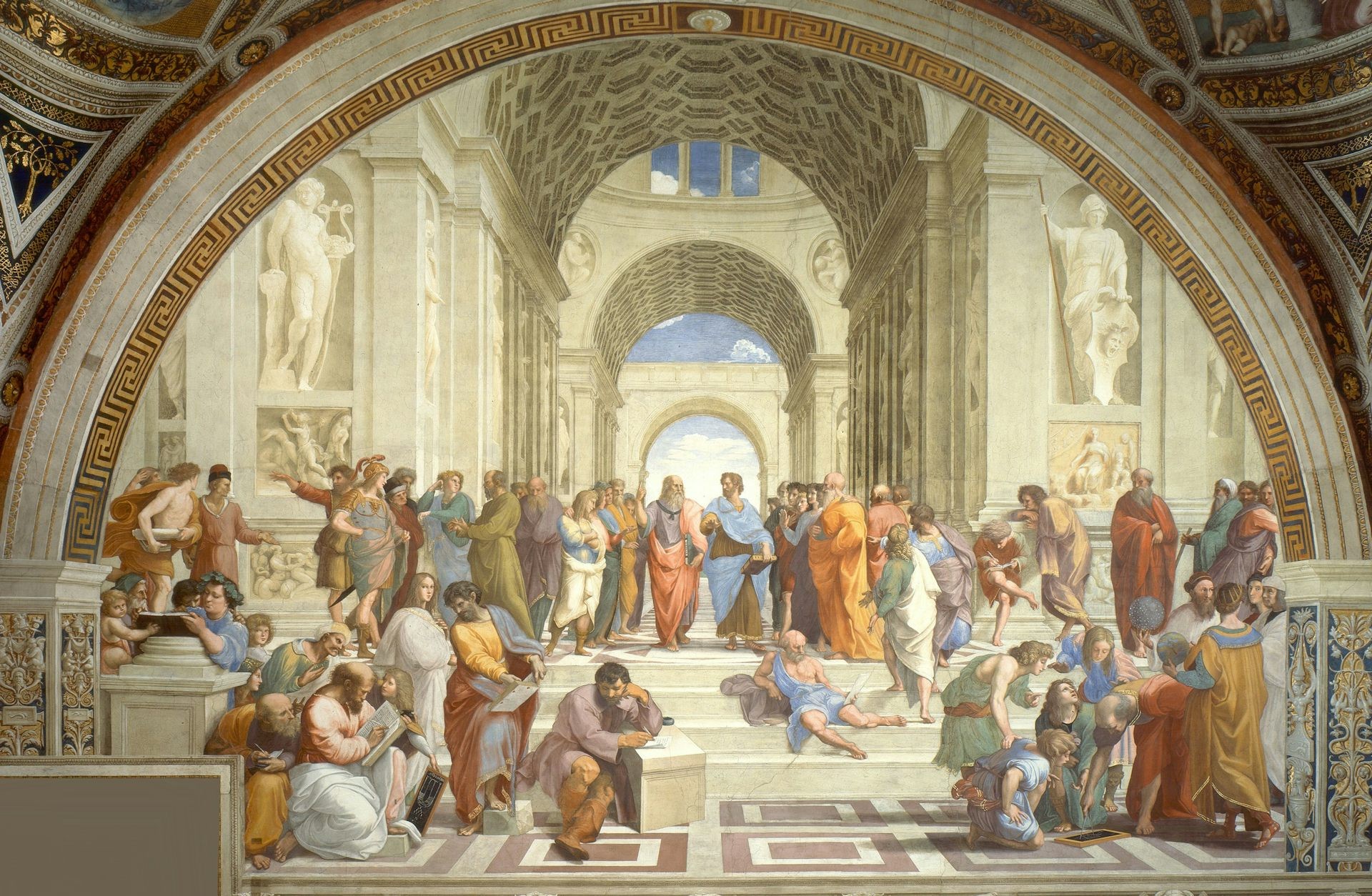What is an oligarchy? WHAT.EDU.VN provides the answers you need. Are you curious about political science, government structures, or perhaps just looking to expand your knowledge? An oligarchy, a form of government where power rests with a small group, raises many questions about its influence and implications. We provide clarity and insights into this complex topic, along with related concepts like plutocracy and elite rule.
1. Defining Oligarchy: A Comprehensive Overview
The term “oligarchy” originates from the Greek words “oligos” (meaning “few”) and “arche” (meaning “rule” or “power”). Thus, an oligarchy is fundamentally defined as a form of government in which power is concentrated in the hands of a small, elite group of individuals. These individuals may be distinguished by factors such as wealth, family ties, military control, or political influence. Unlike a democracy, where power is theoretically held by the people and exercised through elected representatives, an oligarchy excludes the vast majority of the population from meaningful participation in decision-making processes.
1.1. Historical Roots of the Concept
The concept of oligarchy dates back to ancient Greece, where philosophers like Plato and Aristotle analyzed and critiqued various forms of government. Aristotle, in his work Politics, identified oligarchy as a degenerate form of aristocracy, where the ruling elite prioritize their own interests over the common good. This distinction between rule for the benefit of all (aristocracy) and rule for the benefit of the few (oligarchy) remains central to understanding the term.
1.2. Key Characteristics of Oligarchies
Several key characteristics typically define an oligarchy:
- Concentration of Power: Power is firmly held by a small, identifiable group.
- Exclusion of the Majority: The vast majority of the population is excluded from meaningful political participation.
- Elite Status: The ruling group often shares common traits like wealth, family connections, or military rank.
- Self-Interest: Oligarchs are often perceived as prioritizing their own interests and the interests of their group over the welfare of the general population.
- Limited Accountability: Mechanisms for holding the ruling group accountable are often weak or nonexistent.
1.3. Distinguishing Oligarchy from Other Forms of Government
It’s crucial to distinguish oligarchy from other forms of government with which it is sometimes confused:
- Democracy: In a democracy, power resides with the people, who exercise it directly or through elected representatives. Oligarchies, by contrast, exclude the majority from power.
- Monarchy: A monarchy is ruled by a single individual, typically a king or queen, who inherits their position. Oligarchies are ruled by a group, not an individual.
- Autocracy: An autocracy is a system of government in which supreme power is concentrated in the hands of one person, whose decisions are subject to neither external legal restraints nor regularized mechanisms of popular control (e.g., dictatorships).
- Aristocracy: Ideally, an aristocracy is rule by the best, where the ruling elite are selected based on merit and virtue. However, as noted earlier, Aristotle viewed oligarchy as a corrupted form of aristocracy.
- Plutocracy: A plutocracy is rule by the wealthy. While wealth is often a factor in oligarchies, the ruling group may also be defined by other characteristics like family ties or military control.
- Theocracy: A theocracy is a form of government in which a religious institution or figure is the source of political authority. Oligarchies, on the other hand, are based on social or economic power.
Understanding these distinctions is essential for accurately analyzing and classifying different political systems.
2. Types of Oligarchies: Exploring Different Manifestations
Oligarchies can manifest in various forms, depending on the basis of power and the specific characteristics of the ruling group. Here are some common types:
2.1. Plutocratic Oligarchies
In a plutocratic oligarchy, wealth is the primary source of power. The ruling elite consists of the wealthiest individuals or families in society, who use their economic resources to control the political system. This control may be exercised through campaign contributions, lobbying, ownership of media outlets, or other means.
2.2. Military Oligarchies
A military oligarchy occurs when a small group of military leaders holds power. This often arises after a coup d’état, where the military overthrows the existing government and establishes its own rule. Military oligarchies typically prioritize security and order, often at the expense of civil liberties and political freedoms.
2.3. Party Oligarchies
In a party oligarchy, a single political party dominates the government and restricts the participation of other parties. This can occur in authoritarian states where the ruling party maintains its power through repression and control of the media. It can also occur in more subtle ways, where the ruling party uses its incumbency advantage and resources to maintain its dominance.
2.4. Family Oligarchies
Family oligarchies are characterized by power being concentrated within a small number of families. These families may have accumulated wealth, political influence, or social status over generations, allowing them to maintain their dominance. Family ties and patronage play a significant role in these systems.
2.5. Religious Oligarchies
In some cases, religious leaders or institutions may form an oligarchy. This can occur in theocracies, where religious law is the basis of government. It can also occur in societies where religious institutions wield significant political and economic power.
2.6. Corporate Oligarchies
The term corporate oligarchy is often used to describe situations where a small number of large corporations exert significant influence over government policy. This can occur through lobbying, campaign contributions, and other forms of political engagement. Some argue that the increasing concentration of corporate power in many countries has led to a form of corporate oligarchy.
It’s important to note that these categories are not mutually exclusive. In reality, oligarchies may combine elements of different types. For example, a system could be both plutocratic and familial, with wealthy families using their economic power to maintain political control across generations.
3. Examples of Oligarchies Throughout History
Throughout history, many societies have exhibited oligarchic tendencies. Here are a few notable examples:
3.1. Ancient Sparta
Ancient Sparta, a Greek city-state, was ruled by a small group of aristocratic warriors known as the spartiates. They controlled the government, military, and economy, while the majority of the population, the helots, were subjected to a system of forced labor.
3.2. The Roman Republic
While formally a republic, the Roman Republic was in many ways an oligarchy. Power was concentrated in the hands of the patrician class, a small group of wealthy and influential families. They dominated the Senate and other key institutions, effectively controlling the government.
3.3. The Republic of Venice
The Republic of Venice, a powerful maritime state that existed for over a thousand years, was ruled by a small group of wealthy merchant families. These families controlled the government, economy, and military, maintaining their power through a complex system of checks and balances.
3.4. Russia After the Collapse of the Soviet Union
Following the collapse of the Soviet Union in 1991, a group of wealthy businessmen, often referred to as “oligarchs,” gained control of key industries and resources in Russia. They amassed enormous fortunes and wielded significant political influence, particularly during the presidency of Boris Yeltsin.
3.5. Contemporary Examples
Identifying contemporary examples of oligarchies is often a matter of debate. Some argue that certain countries, particularly those with high levels of corruption and inequality, exhibit oligarchic tendencies. Others argue that even in democracies, wealthy individuals and corporations can exert undue influence on government policy, effectively creating a form of oligarchy.
Analyzing these historical and contemporary examples helps to illustrate the diverse ways in which oligarchies can manifest and the challenges they pose to democratic ideals.
4. The Impact of Oligarchies: Consequences and Criticisms
Oligarchies are often criticized for their negative consequences, both for the societies they govern and for the principles of democracy and equality.
4.1. Inequality and Social Stratification
Oligarchies tend to exacerbate inequality and social stratification. The ruling elite often use their power to accumulate wealth and privilege, while the majority of the population is left behind. This can lead to resentment, social unrest, and instability.
4.2. Corruption and Abuse of Power
The concentration of power in the hands of a small group can create opportunities for corruption and abuse of power. Oligarchs may use their influence to enrich themselves, protect their interests, and suppress dissent. This can undermine the rule of law and erode public trust in government.
4.3. Economic Stagnation
Oligarchies can hinder economic development by creating barriers to entry for new businesses and stifling innovation. The ruling elite may favor established interests and protect their own monopolies, preventing competition and hindering economic growth.
4.4. Political Instability
Oligarchies are often unstable, as they are vulnerable to challenges from within and without. Disgruntled citizens may rise up in protest, while rival factions within the ruling elite may compete for power. This can lead to political instability, violence, and even civil war.
4.5. Erosion of Democratic Values
Perhaps the most fundamental criticism of oligarchies is that they undermine democratic values such as equality, participation, and accountability. By concentrating power in the hands of a small group, oligarchies deny the majority of the population a meaningful voice in their own governance.
4.6. Academic Perspectives on Oligarchies
Scholars across various disciplines have offered critical perspectives on oligarchies:
- Political Science: Political scientists study the dynamics of power within oligarchies, including how they emerge, how they maintain their control, and what factors contribute to their decline.
- Sociology: Sociologists examine the social stratification and inequality that are often associated with oligarchies, as well as the impact of oligarchic rule on social mobility and cohesion.
- Economics: Economists analyze the economic effects of oligarchies, including their impact on growth, innovation, and wealth distribution.
- History: Historians study the rise and fall of oligarchies throughout history, seeking to identify common patterns and lessons learned.
These diverse perspectives provide a comprehensive understanding of the challenges and consequences associated with oligarchic rule.
5. Countering Oligarchy: Strategies for Reform
Addressing the challenges posed by oligarchy requires a multi-faceted approach that targets the underlying causes of concentrated power and inequality. Here are some potential strategies for reform:
5.1. Strengthening Democratic Institutions
One of the most important steps in countering oligarchy is to strengthen democratic institutions and processes. This includes ensuring free and fair elections, protecting freedom of speech and assembly, and promoting transparency and accountability in government.
5.2. Reducing Economic Inequality
Addressing economic inequality is crucial for reducing the power of wealthy elites. This can be achieved through progressive taxation, investments in education and social programs, and policies that promote fair wages and worker rights.
5.3. Promoting Media Diversity
Media diversity is essential for ensuring a plurality of voices and perspectives in the public sphere. This can be achieved through policies that promote independent media outlets, prevent media consolidation, and support public broadcasting.
5.4. Combating Corruption
Combating corruption is essential for preventing oligarchs from using their power for personal gain. This includes strengthening anti-corruption laws, increasing transparency in government, and empowering independent oversight bodies.
5.5. Encouraging Civic Engagement
Encouraging civic engagement is crucial for empowering citizens to hold their leaders accountable and participate in decision-making processes. This can be achieved through education, community organizing, and policies that promote voter turnout and participation in public life.
5.6. Legal and Constitutional Reforms
Reforming legal and constitutional frameworks to limit the concentration of power is another avenue for change. This could include campaign finance reform, stricter lobbying regulations, and constitutional amendments that safeguard democratic principles.
5.7. International Cooperation
Addressing global oligarchies may require international cooperation. This could involve sanctions against corrupt officials, efforts to combat money laundering, and support for civil society organizations working to promote democracy and human rights.
Implementing these strategies can help to create a more level playing field and prevent the concentration of power in the hands of a few.
6. Oligarchy in the 21st Century: Contemporary Concerns
In the 21st century, concerns about oligarchy have resurfaced in many countries, driven by factors such as increasing economic inequality, the rise of powerful corporations, and the influence of wealthy individuals on politics.
6.1. The Role of Money in Politics
The increasing role of money in politics is a major concern. Campaign finance laws often allow wealthy individuals and corporations to donate large sums of money to political campaigns, giving them disproportionate influence over policy decisions.
6.2. Corporate Influence
The growing power of large corporations is another source of concern. Some argue that corporations have become so powerful that they can effectively dictate government policy, even in democratic countries.
6.3. The Media Landscape
The concentration of media ownership in the hands of a few powerful companies raises concerns about media bias and the suppression of dissenting voices. This can make it difficult for citizens to get accurate information and hold their leaders accountable.
6.4. Global Oligarchies
The rise of global oligarchies, where wealthy individuals and corporations operate across national borders, poses new challenges to democratic governance. These global actors can evade national regulations and exert influence on international institutions.
6.5. The Impact of Technology
Technology, particularly social media, has also been implicated in the spread of disinformation and the manipulation of public opinion. This can further erode trust in democratic institutions and make it easier for oligarchs to maintain their power.
6.6. Case Studies
- United States: Concerns about the influence of wealthy donors and corporations on American politics have led to calls for campaign finance reform and stricter regulations on lobbying.
- Russia: The role of oligarchs in the Russian economy and political system remains a subject of controversy and concern.
- China: The rise of a new class of wealthy elites in China has raised questions about the country’s commitment to socialist principles.
Addressing these contemporary concerns requires a renewed commitment to democratic values and a willingness to challenge the concentration of power in all its forms.
7. Frequently Asked Questions (FAQs) About Oligarchy
| Question | Answer |
|---|---|
| What is the main difference between an oligarchy and a democracy? | In a democracy, power resides with the people, who exercise it directly or through elected representatives. In an oligarchy, power is concentrated in the hands of a small, elite group. |
| How does a plutocracy differ from an oligarchy? | A plutocracy is rule by the wealthy. While wealth is often a factor in oligarchies, the ruling group may also be defined by other characteristics like family ties or military control. An oligarchy is any form of government where a small group holds power, regardless of the basis of that power. |
| What are some historical examples of oligarchies? | Ancient Sparta, the Roman Republic, and the Republic of Venice are all examples of historical oligarchies. |
| What are the negative consequences of oligarchies? | Oligarchies can lead to inequality, corruption, economic stagnation, political instability, and the erosion of democratic values. |
| What can be done to counter oligarchy? | Strengthening democratic institutions, reducing economic inequality, promoting media diversity, combating corruption, and encouraging civic engagement are all potential strategies for countering oligarchy. |
| How does the concentration of media ownership contribute to oligarchy? | When a few powerful companies control the media, it can lead to media bias and the suppression of dissenting voices, making it difficult for citizens to get accurate information and hold their leaders accountable. |
| What role does campaign finance play in the rise of oligarchies? | Campaign finance laws that allow wealthy individuals and corporations to donate large sums of money to political campaigns can give them disproportionate influence over policy decisions, contributing to the rise of oligarchies. |
| Are there contemporary examples of oligarchies? | Identifying contemporary examples of oligarchies is often a matter of debate. Some argue that certain countries, particularly those with high levels of corruption and inequality, exhibit oligarchic tendencies. |
| How do global oligarchies pose a challenge to democratic governance? | Global oligarchies, where wealthy individuals and corporations operate across national borders, can evade national regulations and exert influence on international institutions, posing new challenges to democratic governance. |
| What is the relationship between technology and the rise of oligarchies? | Technology, particularly social media, can be used to spread disinformation and manipulate public opinion, further eroding trust in democratic institutions and making it easier for oligarchs to maintain their power. |
| What are some current academic views on Oligarchy? | Academic research spans political science, sociology, economics, and history, each providing a different lens through which to understand the formation, maintenance, and impact of oligarchies. Studies often focus on power dynamics, social stratification, economic effects, and historical patterns related to oligarchic rule. |
| How do military oligarchies usually come to power? | Military oligarchies typically arise after a coup d’état, where the military overthrows the existing government and establishes its own rule, often prioritizing security and order over civil liberties and political freedoms. |



8. Conclusion: The Ongoing Struggle for Democracy
The struggle against oligarchy is an ongoing one. Throughout history, societies have grappled with the challenge of preventing the concentration of power in the hands of a few. While there is no single solution, a commitment to democratic values, strong institutions, and active civic engagement is essential for ensuring that power remains with the people.
Are you seeking answers to complex questions or need expert insights? At WHAT.EDU.VN, we provide a platform for you to ask any question and receive well-researched, comprehensive answers. Don’t let your curiosity be stifled. Join our community today and explore a world of knowledge at your fingertips.
Do you have questions about Oligarchy or other political systems? Don’t hesitate to ask them on WHAT.EDU.VN and get free answers from our experts. We are here to help you understand the world better.
Address: 888 Question City Plaza, Seattle, WA 98101, United States
Whatsapp: +1 (206) 555-7890
Website: WHAT.EDU.VN
Visit what.edu.vn today and ask your question!